Does an air purifier stop dust? The experts have good news and bad news
Is there anything an air purifier can’t do?
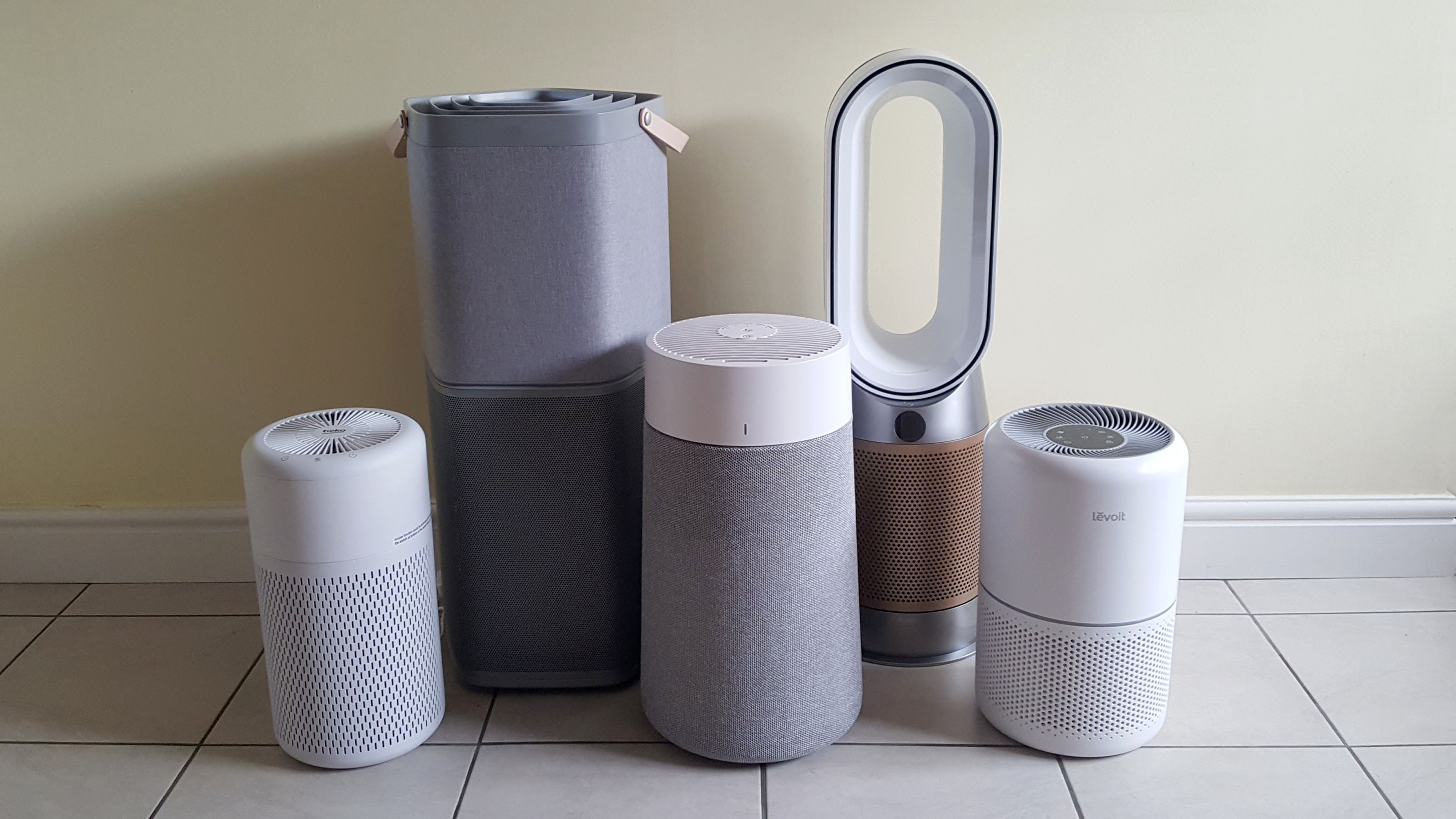

If you feel like you’re constantly dusting your house, you might be wondering whether an air purifier stops dust. To answer this question once and for all, we’ve consulted with the experts.
At Ideal Home, we’ve had the pleasure of testing the best air purifiers on the market, and while we’re impressed by the best houseplants that can reduce dust, nothing comes close to the cleaning powers of the air purifier. This nifty appliance can rid your home of airborne pollutants and help you breathe easily throughout the year. But can they stop dust completely?
With the help of industry experts, we're happy to report that air purifiers can indeed affect the dust levels in your home. However, with good news comes a little bit of bad news, so you probably shouldn’t retire your feather duster just yet.
Does an air purifier stop dust?
If you’re wondering whether an air purifier stops dust, it’s important to realise that this question has a two-pronged answer. On the one hand, an air purifier does help to remove dust from your home. But there is a caveat to this.
Chris Michael, Managing Director of Meaco, explains, ‘An air purifier will not stop the creation of dust, but it will help to capture dust that is within the air and within its reach.’
That’s because an air purifier is designed to filter and capture airborne particles, dust, and pollutants in your home. In doing this, you can be sure that you’re breathing in clean, pure air - which is particularly important for those who struggle with asthma or allergies.
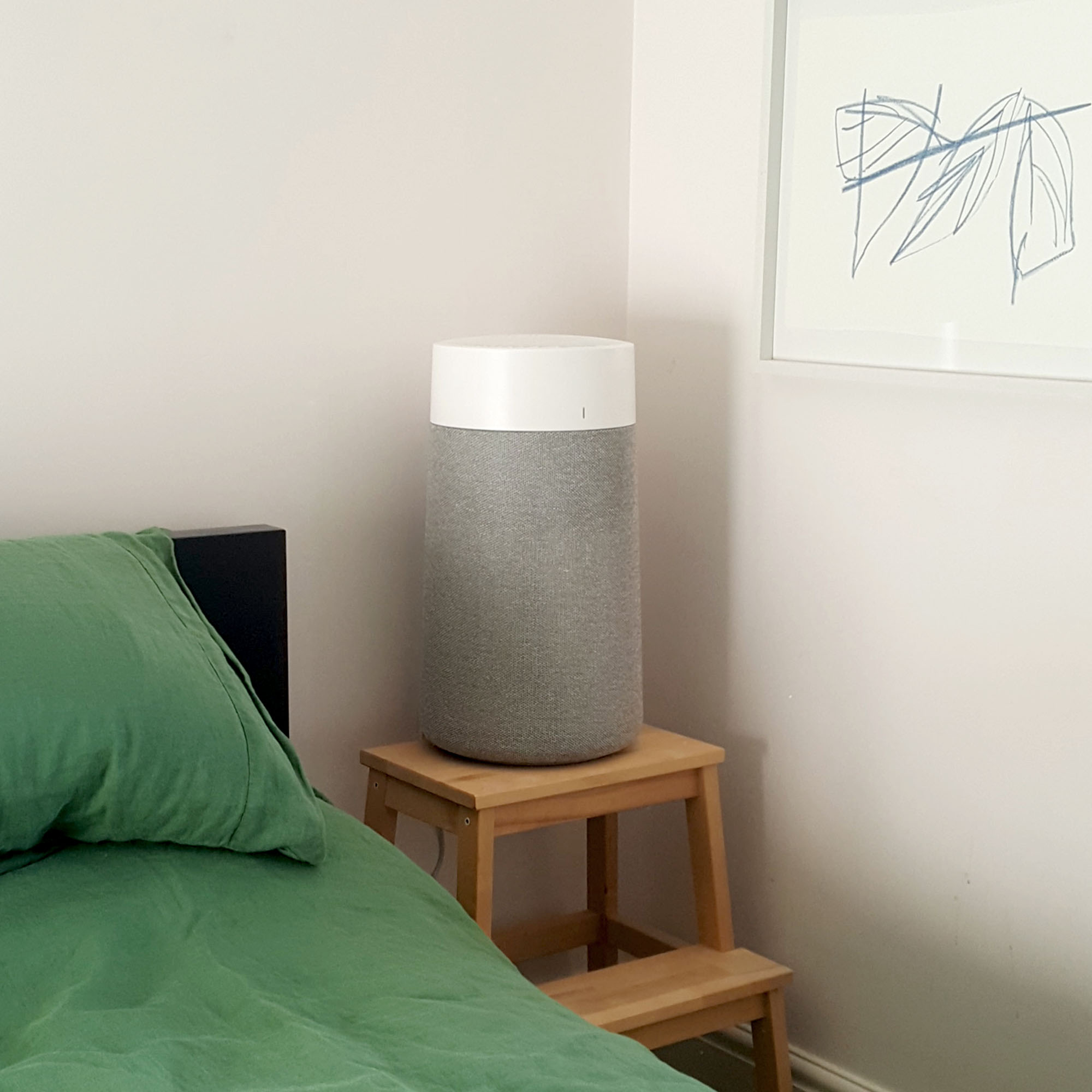
Quality is key when it comes to air purifiers and dust, though. Joshua Warren, air purifier expert at AO.com, suggests buying a specific air purifier for this job.
Get the Ideal Home Newsletter
Sign up to our newsletter for style and decor inspiration, house makeovers, project advice and more.
‘If you’re looking to tackle dust, then look out for air purifier models with HEPA (high-efficiency particulate air) filters,’ he explains. ‘These filters are highly efficient at capturing dust particles, so be sure to move this from room to room to help remove any dust buildup in your home.’
This means that, as long as you have the right air purifier for your home, this handy appliance can remove dust from your home. But that doesn’t mean that it won’t come back.

Unfortunately, it’s impossible to stop the formation of dust in your home. Every time you walk outside and bring your shoes back indoors, you’re bringing dust into the house. Every time your dog shakes its head, it’s adding more dust to your house. In fact, even using the best vacuum cleaner can contribute to this extra dust.
This is something that I’ve (unofficially) tested myself with my Philips Series 800 AC0820/30 Air Purifier, which monitors the air quality in real time. The display on the top of the air purifier changes colour based on the air quality (blue = good, purple = fair, pink = poor, red = very poor), and the fan speed will automatically adjust itself with this knowledge.
During my test, I checked the display before and after vacuuming my living room - and it actually got worse. Before I vacuumed, my air quality was fair. When I finished vacuuming, I noticed the fan speed had increased, my air quality had changed to poor, and the colour had changed to pink.
Thankfully, it only took around five minutes for the air purifier to work its magic and for the air quality to improve again, but I can only assume that the act of vacuuming disrupted the dust on my floor and on my rug and thrust it into the air.

And if I didn’t have an air purifier, I would be breathing in that extra dust without even realising it. So, I can deny that it’s definitely a purchase I’m thankful for.
But Chris wants people to realise that an air purifier isn’t a complete solution for dusting. He says, ‘It is not a replacement for dusting, though, and there will be some left in areas that are outside of its influence.’ In fact, that’s why you should always research the specs of the air purifier you want to buy and work out how many air purifiers you need to cover the entirety of your home.
Keeping on top of your cleaning is seconded by Cristina Raboj, Global Proposition Manager at Philips, who says, ‘I would recommend keeping up with regular dusting at least once a week to get rid of those extra-large bits of dust before they can become an issue.’
‘By doing this, you’ll be giving your air purifier the helping hand it needs and will be breathing more easily in no time.’

Chris has been advising on humidity solutions and dehumidifiers since 1991 and is well known within the dehumidifier industry across the world as a lead on innovation and sustainability. Since the mid-90s Chris has been a guest speaker at numerous conferences to teach museum conservators how to measure relative humidity. With a wealth of experience in the industry, Chris is committed to helping provide low-energy and low-noise solutions appliances that improve the lives of customers.
The best air purifiers for dust - our top picks
If you're looking for an air purifier that can help to reduce dust in your home, we've put together a few of our favourite picks below.
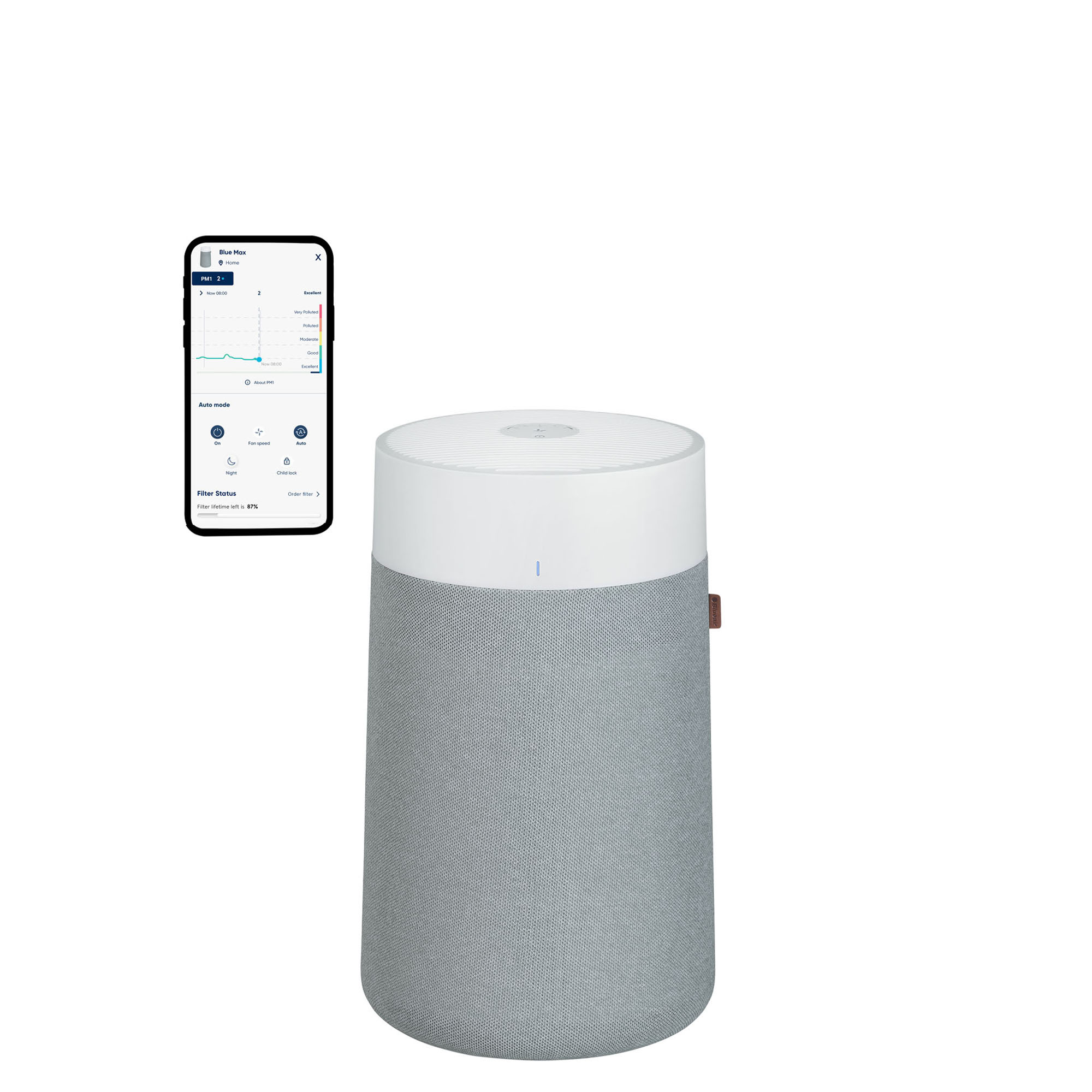
Crowned the 'best overall' air purifier in our guide, this particular air purifier comes with a 3-Stage HEPASilent Filter that can remove of 99.97% of airborne particles (including dust) down to 0.1 micron in size - which is more than the industry average. Plus, it'll work wonders on a rooms up to 48m2.
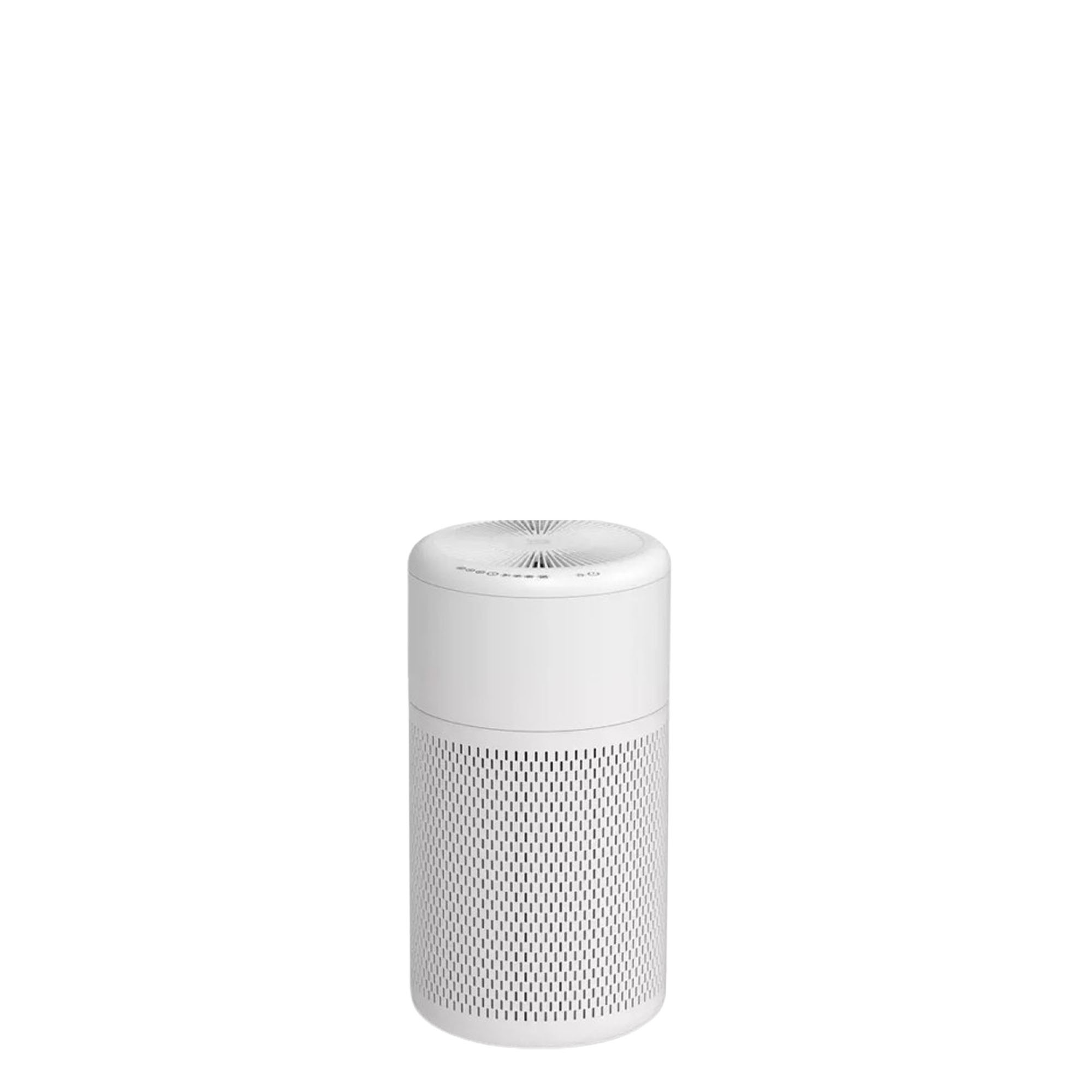
If you're looking for an affordable air purifier to get rid of dust in a smaller home, look no further than the Beko ATP5100I Air Purifier. Kitted out in three filters, its 3-Stage Pre-Filter, HEPA 13 Filter, and Carbon Filters will work wonders to rid your home of dust. Plus, it's regularly on sale for less than £55.
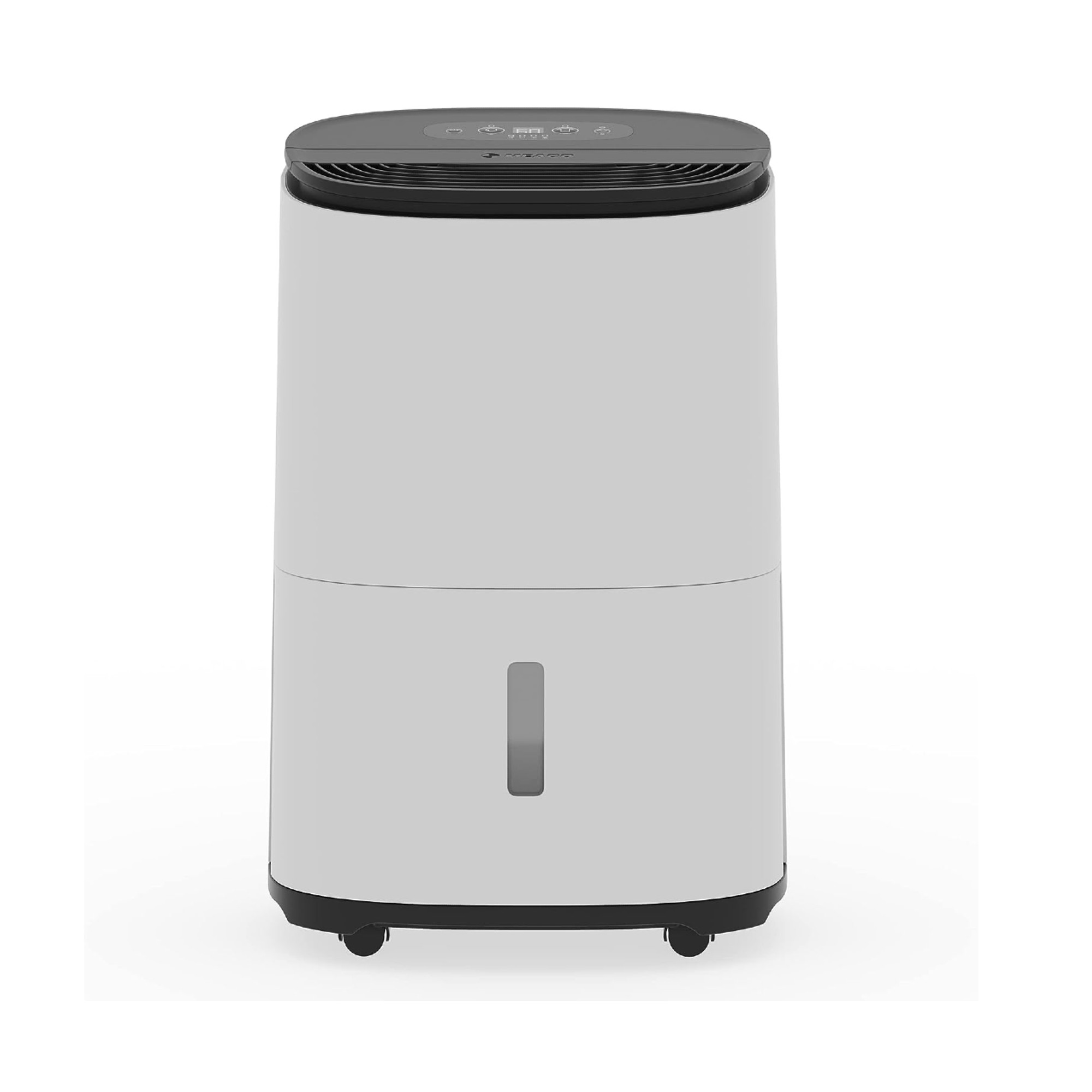
As you can probably tell by the name, the Meaco Arete One Dehumidifier & Air Purifier offers two appliances in one. This will work in your favour if you're looking to get rid of dust, as controlling the humidity levels in your home can also help you control the amount of dust. Plus, this is one of the best-rated appliances we've ever tested.
FAQs
Do air purifiers really reduce dust?
Yes, air purifiers are designed to remove dust particles from the air. However, it’s important to realise that it cannot stop the formation of dust, and it’s unlikely that an air purifier will remove dust from your home completely.
Because of this, it’s important to maintain a continued cleaning schedule of dusting and vacuuming your home, as well as using an air purifier.
Should I get an air purifier if my room is dusty?
Air purifiers are certainly a worthwhile investment, especially if your home is particularly prone to dust. These appliances are designed to remove allergens, pollutants, and dust from the air and can certainly help to reduce the amount of dust in your home.
Just remember to keep on top of your air purifier maintenance, which involves cleaning or replacing the filter as recommended by the manufacturer. If you don’t, the air purifier will struggle to work to the best of its ability, and it may struggle to remove dust particles from the air.
How long does it take for an air purifier to remove dust?
This all depends on the size of your room or home, your air quality, and the quality of the air purifier itself. If you don’t have a dusty home, the air purifier could work its magic in as little as 30 minutes. If you do have a dusty home, it could take longer and may even take over two hours to remove the dust from your home.
With this in mind, we’re starting to wonder if there’s anything an air purifier can’t do.

Lauren Bradbury has been the Content Editor for the House Manual section since January 2025 but worked with the team as a freelancer for a year and a half before that. She graduated with a Bachelor’s degree in English and Creative Writing from the University of Chichester in 2016. Then, she dipped her toe into the world of content writing, primarily focusing on home content. After years of agency work, she decided to take the plunge and become a full-time freelancer for online publications, including Real Homes and Ideal Home, before taking on this permanent role. Now, she spends her days searching for the best decluttering and cleaning hacks and creating handy how-to guides for homeowners and renters alike, as well as testing vacuums as part of her role as the Ideal Home Certified Expert in Training on Vacuums, having spent over 110 hours testing different vacuum models to date!
-
 Will a conservatory add value to your home and how can you maximise it?
Will a conservatory add value to your home and how can you maximise it?This is what the pros say
By Amy Reeves
-
 I’ve been looking for a new signature scent for my home and The White Company's new fragrance is the exact summer holiday smell I needed
I’ve been looking for a new signature scent for my home and The White Company's new fragrance is the exact summer holiday smell I neededSantorini smells fresh, summery and sophisticated
By Kezia Reynolds
-
 How to remove algae from garden walls in five steps – and the cleaning product experts rave about for tackling it fast
How to remove algae from garden walls in five steps – and the cleaning product experts rave about for tackling it fastExperts share their top tips for getting garden walls algae-free
By Katie Sims